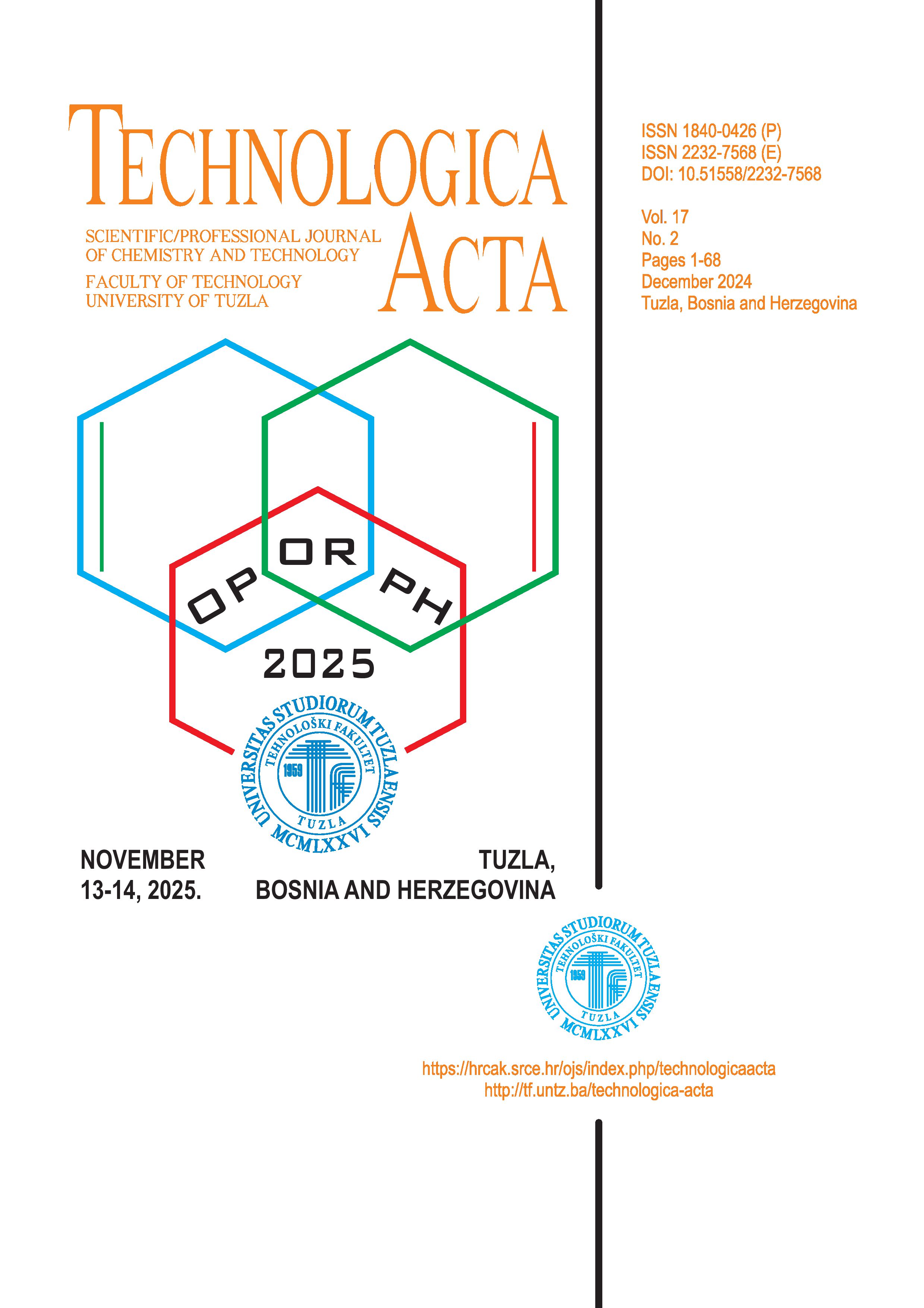Cytotoxic, antibacterial and antioxidant activity of the methanolic extract of speedwells (Veronica officinalis L.)
Keywords:
polyphenols, flavonoids, cytotoxicity, antibacterial activity, antioxidant potentialAbstract
Speedwells (Veronica officinalis L.) is a plant species used in traditional medicine for the preparation of teas, tinctures and other preparations for the treatment of diseases of the skin, respiratory and digestive organs. In this paper, the biological activity of the methanolic extract of the speedwells was examined. To assess the cytotoxic potential, a tetrazolium salt reduction (MTT) viability assay was performed. The experiments were carried out on 3 human cell lines: lung carcinoma (H460), cervical adenocarcinoma (HeLa) and colorectal carcinoma (HCT116). Antimicrobial potential was tested using the diffusion technique on three bacterial strains: S. aureus, E. faecalis and S. enterica. Inhibition of free radicals was tested using the ABTS and DPPH methods, and the reduction potential of the extract of the speedwells was confirmed by the FRAP method. The treatment of HeLa, H460, and HCT116 cell lines with the methanolic extract of speedwells demonstrated a dose-dependent decrease in cell growth. The extract showed a high inhibition of the growth of S. aureus but also a complete absence of activity in the case of E. faecalis. A high efficiency of inhibition of DPPH and ABTS radicals, as well as reducing ability, was recorded.
Downloads
Published
Issue
Section
License
Copyright (c) 2025 Emir Horozić, Lejla Mekić, Suada Cipurković, Lamija Kolarević, Darja Husejnagić, Merima Ibišević, Enida Karić, Ermina Cilović-Kozarević, Maja Pođanin, Sanja Brekalo-Lazarević, Melisa Šehić, Edina Huseinović

This work is licensed under a Creative Commons Attribution 4.0 International License.


